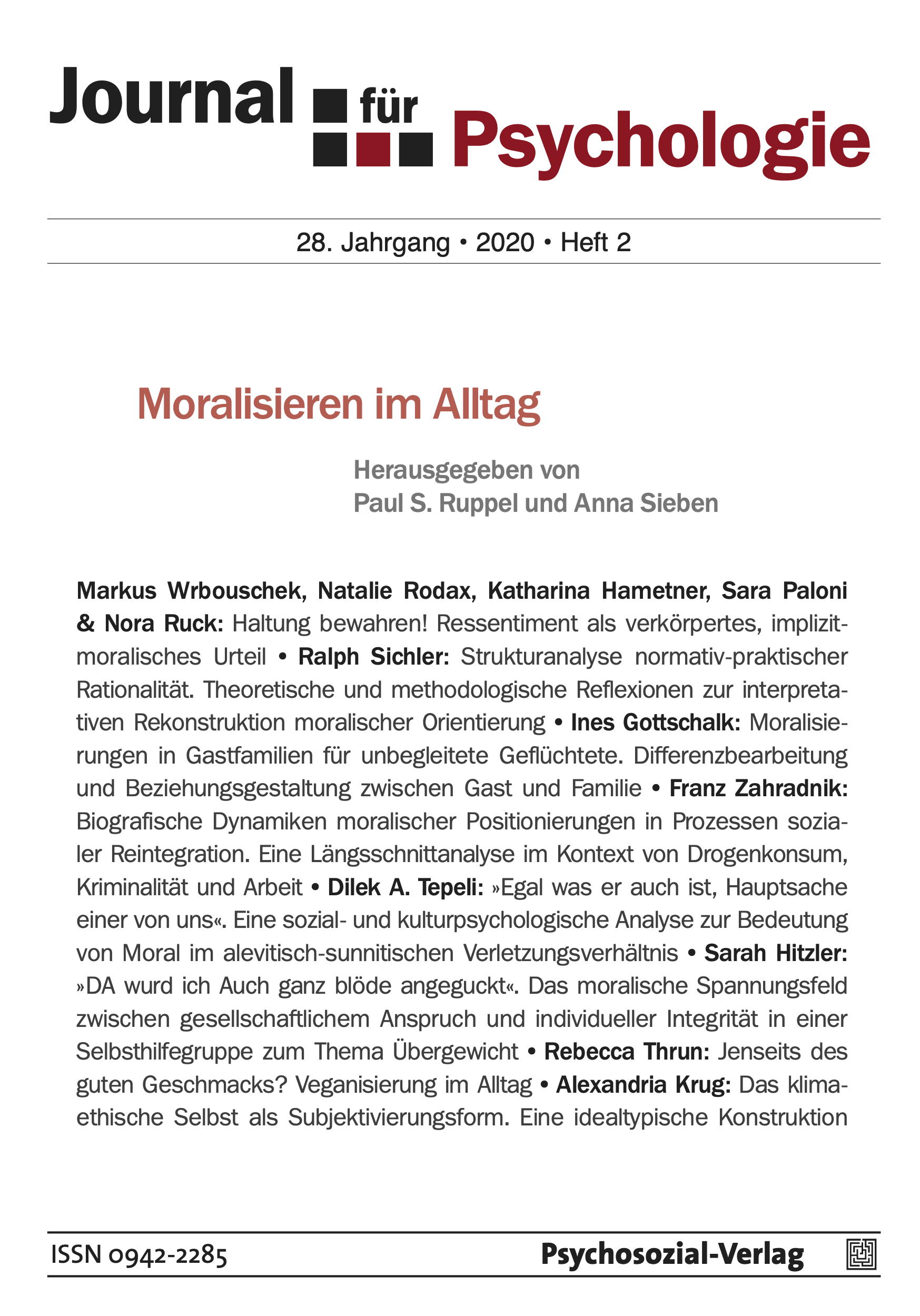Moralizations in host families for unaccompanied refugees
DOI:
https://doi.org/10.30820/0942-2285-2020-2-56Keywords:
Unaccompanied refugees, host family, interculturality, moral, relationship negotiation, identity, qualitative researchAbstract
In this contribution, host families for unaccompanied refugees are understood as moral action spaces to which different orientations of moralization and moral values are transmitted. It is shown that host families can take on different functions, depending on whether they understand the unaccompanied person as a family member or as a guest, and can therefore deal differently with divergent orientations and values. As a newly forming symbolic space of action, it is the obligation of the host family members to negotiate their orientations and values in the context of everyday interactions. Using a qualitative case study conducted in Germany it is shown how moral concepts, but also the role of the unaccompanied and the related possibilities for moralization are negotiated with different actors in a fluid and situational way. Based on this, general reflections on the configuration of relationships and the reformation of subjects in connection with moral(-ization) as contingent orientations and practices are derived.Downloads
Published
2020-12-10
How to Cite
Gottschalk, Ines. 2020. “Moralizations in Host Families for Unaccompanied Refugees”. Journal für Psychologie 28 (2):56-77. https://doi.org/10.30820/0942-2285-2020-2-56.
Issue
Section
Schwerpunkt
License
This license allows private use and unmodified distribution, but prohibits editing and commercial use (further information can be found at: https://creativecommons.org/licenses/by-nc-nd/4.0/).
The terms of the Creative Commons licence only apply to the original material. The reuse of material from other sources (marked with a reference) such as charts, illustrations, photos and text extracts may require further permission for use from the respective copyrights holder.



